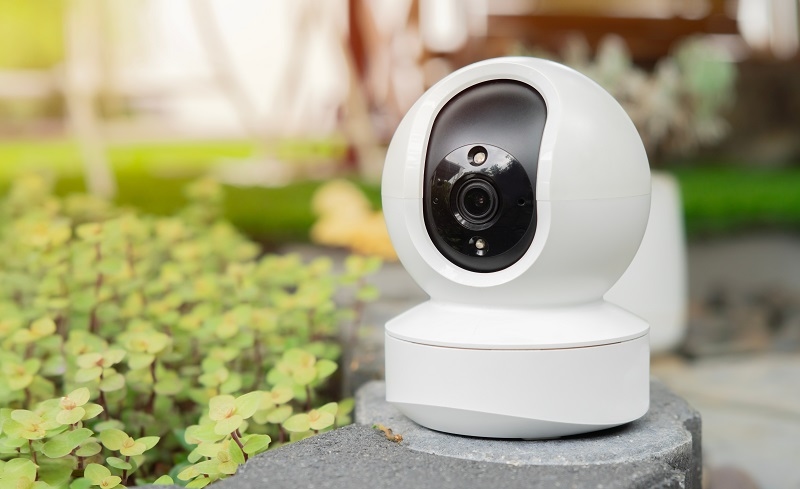Discover Top 5 Smart Home Upgrades for Enhanced Security
Nowadays, making your house secure is essential. Technology has advanced, increasing the efficiency, requiring fewer resources, and resulting in less time to get more skilled upgrades installed in the home. Nowadays, many homeowners have been using smart home DIY upgrades for security and protection of their families from potential threats. Whether you live in an apartment, a suburban home, or a large property, integrating the best smart home upgrades can alleviate the stress that comes with an unsecured home, a peace of mind, and provide a safer living environment.The best home upgrades not only make the home safer and more secure, but they also provide value to the property. By investing in some smart home upgrades, you can monitor your home remotely, get instant alerts of important things and even automate the security features to discourage intruders. So, let's take a look at the top 5 smart home upgrades which can drastically improve the safety of your home.1. Smart Security Cameras for 24/7 SurveillanceAdvanced Monitoring with High-Resolution CamerasMounting smart security cameras is one of the most effective ways to enhance the security of your home. With motion detection, night vision, and high definition video capabilities, these modern security systems enable you to monitor your home in real time. Smart cameras, unlike traditional security cameras, provide remote access, allowing homeowners to monitor their property from laptops, tablets, or smartphones.Security cameras have never been easier to install with do-it-yourself smart home upgrades. Because many of the units are wireless, installation without the services of a professional installer is straightforward. Homes can communicate with visitors or delivery personnel through capabilities such as two-way audio, and AI-based facial recognition can identify familiar faces and potential intruders.Cloud Storage and Smart AlertsThanks to cloud storage technology, contemporary security cameras ensure that video is captured and accessible when required. Voice-controlled security checks are enabled by the compatibility of certain models with smart home systems like Google Assistant and Amazon Alexa. If suspicious activity is detected, you can respond quickly by receiving immediate alerts on your phone with the best home upgrades.2. Smart Door Locks for Keyless EntrySecure and Convenient AccessTraditional locks are susceptible to theft, keys get lost, and duplicate keys could be risky. By offering keyless access options that enhance convenience and security, smart door locks pacify these concerns.These home enhancements will be quite useful to families, rental properties, and hosts on Airbnb. Only authorized users can be provided access by making temporary access codes for guests, service professionals, or delivery personnel.Integration with Smart Home SystemsThe most significant upgrades for smart homes are to be able to interface with other security systems. The entire security system can be formed by integrating smart locks with alarm systems, security cameras, and video doorbells. You can take immediate action if anyone attempts to meddle with the lock by getting real-time notifications on your phone.3. Video Doorbells for Front Door SecurityReal-Time Monitoring of VisitorsFor property owners wishing to boost the security of their front door, a video doorbell is a must-have investment. Without having to open the door, you are able to view and communicate with visitors due to this DIY smart home renovation. HD camera, motion sensing, and night vision enable round-the-clock entry surveillance with video doorbells.By making it clear that the house is under surveillance, these devices help to deter package thieves and burglars. In the case of suspicious activity, many models also have integrated sirens or alarms that can be triggered remotely. The best home upgrades enable homeowners to receive real-time alerts when a person is at the door, even if they are far away.Cloud Recording and Motion DetectionMost video doorbells come equipped with cloud storage functionality that allows homeowners to view past recordings. AI-driven motion detection in top-of-the-line models can differentiate between cars, humans, and animals. By doing so, unnecessary alerts are prevented, and homeowners are notified only of relevant activity.4. Smart Lighting for Security and AutomationDeterring Intruders with Automated LightingA well-lit home is less attractive to burglars. Smart lighting is one of the best home upgrades for deterring burglars. Homeowners can make it seem like someone is always at home by employing motion-sensitive outdoor lights and scheduled interior lighting routines.Smart lighting is easy and inexpensive to install with DIY smart home upgrades. Voice commands, automation schedules, and smartphone apps can all be employed to remotely switch these lights on and off. Motion-sensing lights turn on when motion is detected, scaring potential burglars away before they even get close to the house.Energy Efficiency and CustomizationThe best smart home systems also improve energy efficiency alongside security. It is feasible to schedule smart bulbs and switches to vary their brightness levels, turn themselves off when unattended, and engage in interactions with other security devices. Homeowners can also program lights to start and stop working at random hours in an attempt to make people believe someone is at home when they are not present.5. Smart Alarm Systems for ProtectionComprehensive Home SecurityOne of the greatest investments for complete home security is a smart alarm system. With the offering of smartphone alerts, real-time monitoring, and communication with other smart devices, these modern security systems beat out traditional alarms.Smart alarms automatically notify families through mobile apps, compared to traditional alarm systems that only employ blaring sirens. Some systems offer professional monitoring services, whereby security professionals respond to emergencies even in the absence of the homeowner.Customizable Security SettingsHomeowners may customize the security settings to fit their needs with the utmost advantages. For complete safety, smart alarms can be programmed to recognize unauthorized entry, arm and disarm at scheduled times, and even interface with smoke alarms. Many systems also have panic buttons that, once activated, will immediately alert officials of danger in case of an emergency.Why Smart Home Upgrades Are EssentialThough not a luxury, there are now smart home upgrades that are a necessity for homeowners and these solutions for home security threats require to be delivered in real time monitoring, remotely and automated protection. The home upgrades create a home that you want to stay in, are a safe place, and improve the value to the property as well.Smart home DIY upgrades are never easier to improve home security. If you are looking for certain best home upgrades to keep your home protected and your loved ones well, you can choose to install smart security cameras, change the keyless entry of locks or lighting fixtures as a deterrent.ConclusionOne of the best ways of upgrading your home is through some smart home DIY projects, and that's for one reason: security, convenience, and peace of mind. Real time protection is best provided through smart security cameras, video doorbells, and keyless entry locks that are the best home upgrades. This additional lighting is automated and these alarms are smart so that they pick up on and hinder any intruders that may try to infiltrate your living space. Buying homes that feature these upgrades is not only a step toward security, but it is also a wise investment for property value. WordsCharactersReading time





